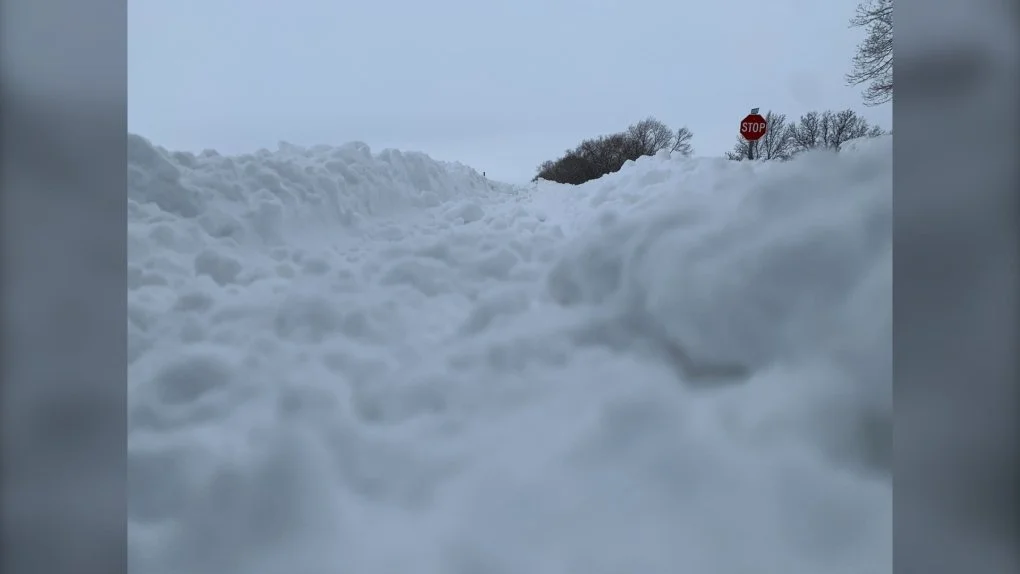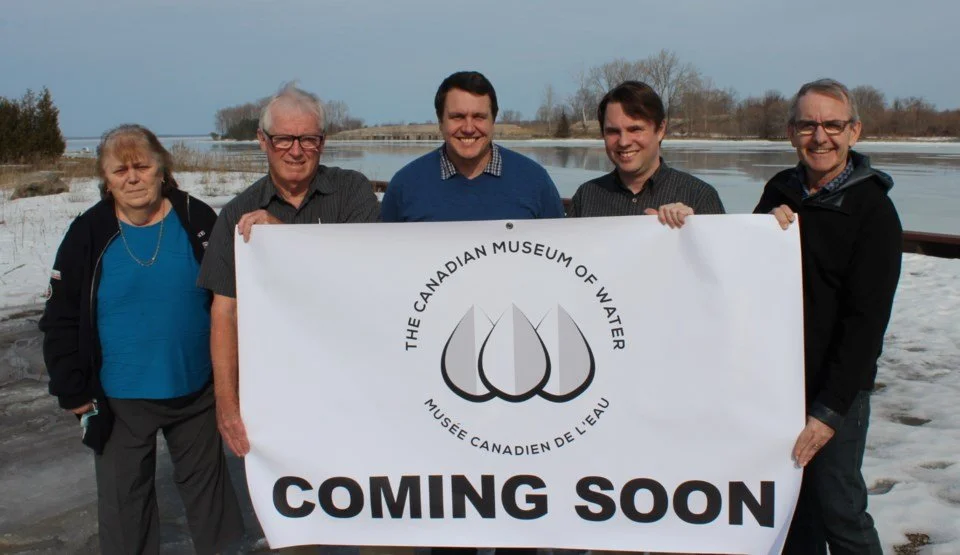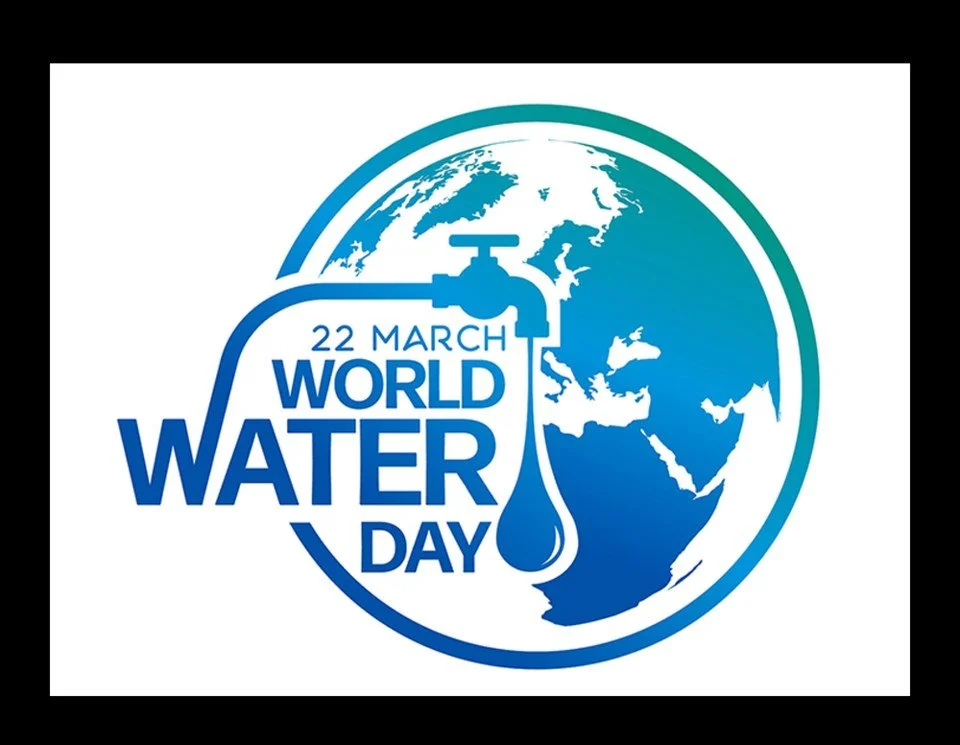Clean drinking water is a critical component for sustainable development—from poverty reduction to economic growth and environmental sustainability. Currently, according to the United Nations (UN) there is a global water crisis affecting almost 2.2 billion people who lack access to safe water. To raise awareness of the crisis and support the global work advancing Sustainable Development Goal 6: Clean Water and Sanitation the UN identified March 22 as World Water Day.
How to keep your home safe from water damage as the snow melts
After experiencing one of the snowiest winters to date in Manitoba, residents are facing a high risk of water damage this spring. According to CAA Manitoba’s Heather Mack, water damage is an issue every year in Manitoba, but this year there is “quite a large risk.” “This year, that extra snowfall put us in more of a vulnerable position for sure. Water damage is the leading cause for all property damage in Canada right now,” she said in an interview on Tuesday.
State of water security in Canada: A water-rich nation prepares for the future after seasons of disaster
The climate crisis is becoming a water crisis, and last year was one of the most disastrous years in Canadian history for water-related extreme events. Widespread drought, flooding, wildfires, permafrost thaw, and glacier retreat resulted in damage to communities, lakes, forests, animals, and crops. As spring 2022 begins, scientists are seeing snowpacks at record-highs in the Yukon and parts of the Rocky Mountains and Manitoba that could lead to more flooding in the West. However, low to non-existent snowpacks have developed across parts of southern Alberta indicating that another drought leading to difficulty growing crops and feeding and watering livestock, could also be on the horizon.
Mill acts on long-awaited water treatment facility
A multimillion-dollar water treatment facility is expected to come to the west side pulp and paper mill five years after its owner Irving Pulp & Paper, Limited was fined for environmental violations. More than $150 million worth of environmental upgrades were announced by Irving Pulp & Paper, Limited this week. The proposed upgrades include a new environmental treatment facility, as well as a cooling water heat exchanger and pumphouse closer to the mill.
Sask. company wants improvements to 'outdated' wastewater operator certification
A Saskatchewan training company is calling for changes to the province’s wastewater operator certification program. Advanced Municipal Solutions (AMS) provides water operation training to First Nations and municipalities. “The model we’re using right now is, I would say, outdated,” said Dawn Dierker, the director of training at AMS. Operators undergo a four-day boot camp-style training and write their certification exam on the fifth day, according to Dierker. She says the program worked 20 years ago when operators had years of experience. Now, operators have gaps in their education and would benefit from longer training, Dierker says.
MIKE HOLMES: How to make your water better
This week we celebrated World Water Day (March 22), which addresses water scarcity, sanitation needs, and access to clean water globally, so it only makes sense that this week’s column is about, you guessed it: Water. Many factors affect water quality, like acidity (pH balance), dissolved solids, gases like radon, hardness, and sediment. We can’t control all these factors, but homeowners can introduce systems that will enhance the water quality you use and consume and thus improve the quality of your life.
/R E P E A T -- OPSEU/SEFPO: Clean and safe drinking water is a human right/
On the eve of World Water Day, OPSEU/SEFPO President Warren (Smokey) Thomas and the OPSEU/SEFPO Indigenous Circle are challenging Ontario's political leaders to pass MPP Sol Mamakwa's Bill 286, the Inherent Right to Safe Drinking Water Act. Many First Nations, Inuit and Métis peoples in Ontario have been without clean water for years. Neskantaga First Nation in Northwestern Ontario had a boil water advisory issued on February 1, 1995. It's still in place today.
City of Ottawa submits recommendations for nuclear waste disposal site at Chalk River
Ottawa city staff have submitted their recommendations for the proposed nuclear waste facility at Chalk River to ensure the Ottawa River is protected from contamination. In a memo dated March 10, staff outline 10 recommendations to ensure the safety of river, the primary source of drinking water for residents of Ottawa. "We are supportive of the proposed [near-surface disposal facility] as a means of providing improved environmental protection and engineered storage for low-level radioactive waste," the memo said.
What’s Up With Water — March 22, 2022
Welcome to “What’s Up With Water,” your need-to-know news of the world’s water from Circle of Blue. I’m Eileen Wray-McCann. In Canada, Indigenous communities can now apply for billions of dollars in compensation for decades of dirty drinking water. The CBC reports that last week the claims process opened for an $8 billion settlement, which was approved three months ago by federal courts. The settlement stems from separate lawsuits filed by two Ontario First Nations over lack of clean water. Because of inadequate infrastructure, many First Nations communities in Canada have had to boil their water before drinking it. A few of these boil-water advisories have lasted for decades. First Nations communities must file their claims by December of this year. Their funds will go towards water system improvements. Individuals who have been affected can also apply for compensation, but they have until March 2023 to do so.
LETTER: We should not take our clean water for granted
Tuesday, March 22 is World Water Day – a day to celebrate and recognize the critical importance of water in our lives (and our existence) and to raise awareness about the billions of people living on this planet without access to safe water. In Canada we are blessed to have 20 per cent of the world’s surface freshwater and up to 7 per cent of the world’s renewable water flow (third highest in the world).
Coors Seltzer Supports Water Replenishment With New Acre Project
New Acre Project, an initiative delivered by ALUS that supports purpose-driven organizations to fund grassroots environmental stewardship projects, announces new funding from BEF (formerly, the Bonneville Environmental Foundation). The funding will support 100 New Acre™ project acres in Alberta, Canada, powered in part by Coors Seltzer’s mission to help protect and restore Canada’s waters.
Q and A with the experts: Current and future challenges facing Canada’s groundwater supply
World Water Day, annually observed by the United Nations on March 22, celebrates water and raises awareness to the billions of people living without access to safe water. This year’s theme is groundwater: making the invisible visible. But what are the current and future challenges facing this natural resource in Canada? University of Waterloo’s Earth and environmental sciences professor and groundwater expert David Rudolph answers this and other questions.
INVESTIGATING IMPACT: FRESHWATER RESEARCH SUPPORTS WATER SECURITY IN CANADA’S ARCTIC COMMUNITIES
Today is World Water Day, an annual reminder of the importance of fresh water. Though many of us take it for granted, there are billions of people around the world who don’t have access to clean, reliable water — some are right here in Canada. For the approximately 150,000 people who live in Canada’s Arctic, there’s no ignoring the fact that fresh water is a finite resource. “Igloolik ran out of water in 2015,” recalls Andrew Medeiros, assistant professor with the School for Resource and Environmental Studies. “The reservoir was not large enough; the dry summer meant the reservoir didn't fill completely while the subsequent extended winter meant they were drawing too much while there was ice on it.”
Group looks to make splash with Canada's first water museum in Port McNicoll
A local group has launched an ambitious plan to create Canada’s first museum of water. Spearheaded by local historian Dan Travers and former SS Keewatin curator Fred Addis, the group was formed late last year in an effort to establish the Canadian Museum of Water/Musee canadien de l'eau (CMW-MCE) that would tell the story of water from the earliest First Nations through the Industrial Age to modern times.
Saskatoon has a lot to celebrate during Canada Water Week
The City of Saskatoon is joining the country in celebrating Canada Water Week which runs for the week of March 21 to 27. Canada Water Week is a national celebration of water that is held annually to coincide with World Water Day on March 22. “Saskatoon has a lot to celebrate and be proud of when it comes to our water. Not only does our city have one of the highest quality water supplies in North America, but right now we have several projects in motion to ensure we continue to deliver a high quality and safe drinking water product,” said Saskatoon Water Interim Director Pam Hamoline.
Join AquaAction and the de Gaspé Beaubien Foundation as they Launch a Nationwide Awareness Campaign to Highlight Innovative Solutions to Critical Freshwater Issues in Canada
AquaAction, a Canadian organization dedicated to restoring freshwater health in Canada by engaging young innovators and activating their solutions, kicked off a multi-million-dollar media campaign aimed at raising awareness about critical water issues and the cutting-edge solutions that are emerging to solve them. "As we mark World Water Day 2022, we want to shine a light on the brilliant young innovators who are working to solve some of the most critical issues we face with regards to freshwater in Canada. Access to clean water is a human right and is essential to the health of our communities, eco-systems and economies. We need to urgently mitigate and adapt to the impact of a changing climate, and we believe in the ingenuity of young Canadians and their innovative solutions when it comes to restoring and preserving freshwater health as we do so," said Francois de Gaspe Beaubien, Chair of the Board of AquaAction.
Indigenous Youth Challenge Marks World Water Day
Tomorrow is World Water Day, and RESEAU Centre for Mobilizing Innovation is marking the occasion by challenging Indigenous youth to solve drinking water problems in their community with the support of scientists and innovators. The Indigenous Youth Potable Water Innovation Challenge 2022 is a pilot program designed to foster innovative spirit in water-health. Working in teams, Indigenous youth in grades K-12 will engage Elders and community leaders and operators to identify local water challenges, barriers to solving them and potential solutions. With innovative educational tools and mentorship from scientists, engineers and experts from the water industry and universities, the teams will develop a solution to solve the most pressing local challenge. Then, they’ll workshop their idea with entrepreneurs before presenting it to their community.
Esquimalt residents without running water frustrated with lack of info about repairs
Three children in Esquimalt, B.C., were wheeling totes full of water from a neighbouring condo building to their own home Monday morning. It was not how these three expected to begin their spring break. "We woke up on Saturday morning to rushing water, a basement full of water," said Hollie Johnson, owner of a condo at 877 Ellery St. in Esquimalt on Monday.
Resurgence of COVID-19 in Saskatoon, Regina worries wastewater researchers
A group of researchers at the University of Saskatchewan is worried about the numbers coming from the latest wastewater study. Every week, researchers test sewage samples taken from water treatment plants across the province to see whether evidence of COVID-19 is increasing or decreasing. That number is used to predict whether cases of COVID-19 will rise or fall in the future. During the latest sampling period ending March 16, researchers found that numbers were back on the rise.
Canada’s First Nations Start Filing Claims for Historic Water Settlement
This story was originally published by Grist. You can subscribe to its weekly newsletter here. For years, First Nations in Canada have been denied access to clean drinking water. Many Indigenous communities have to deal with brown, sludgy water and the destructive health impacts it brought. Some have spent years relying on boiled or bottled water. As of March 8, 2022, there were 23 short-term drinking water advisories in place across the country, that range from boil water advisories to Do Not Consume notices. Now, the Canadian government will have to pay for it.





















